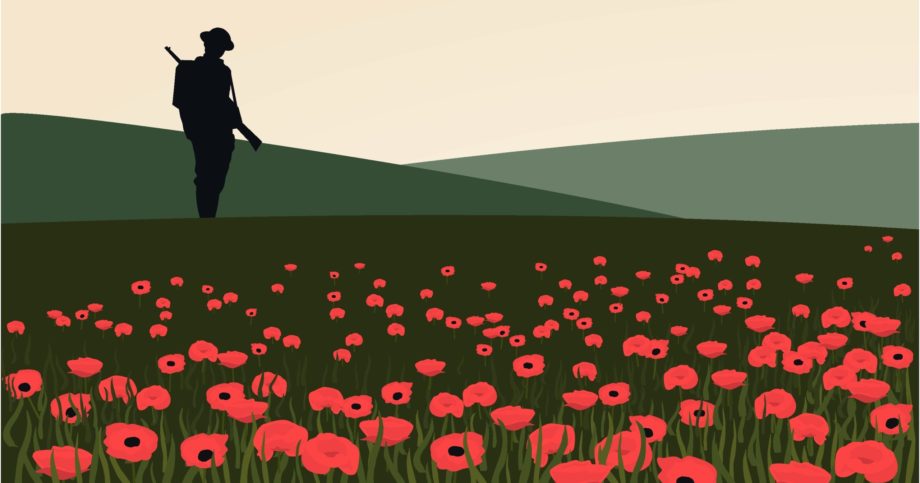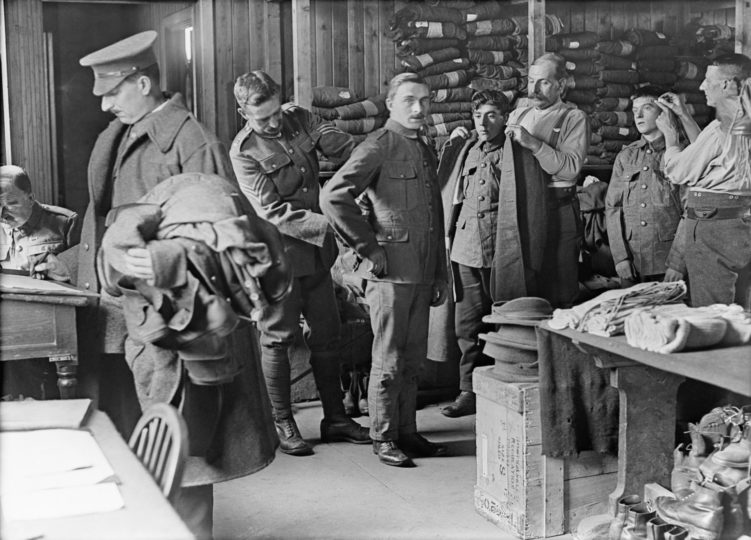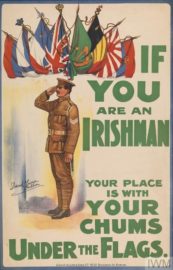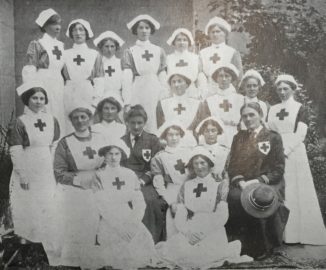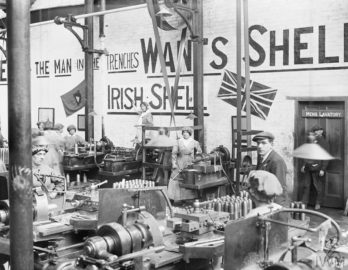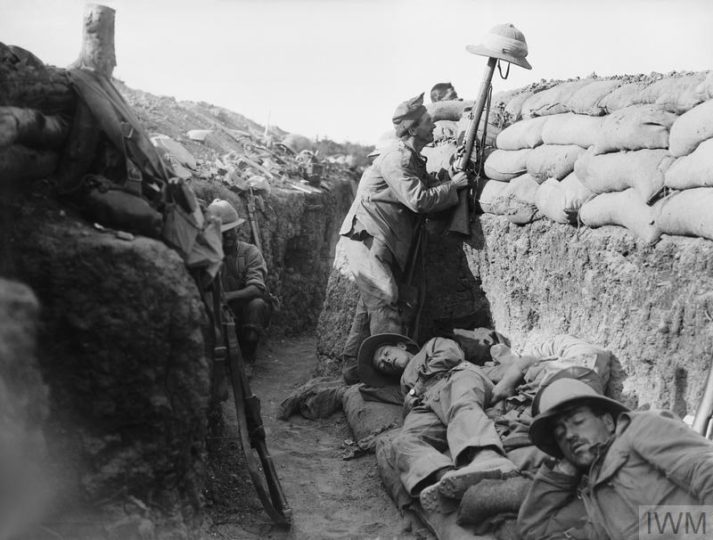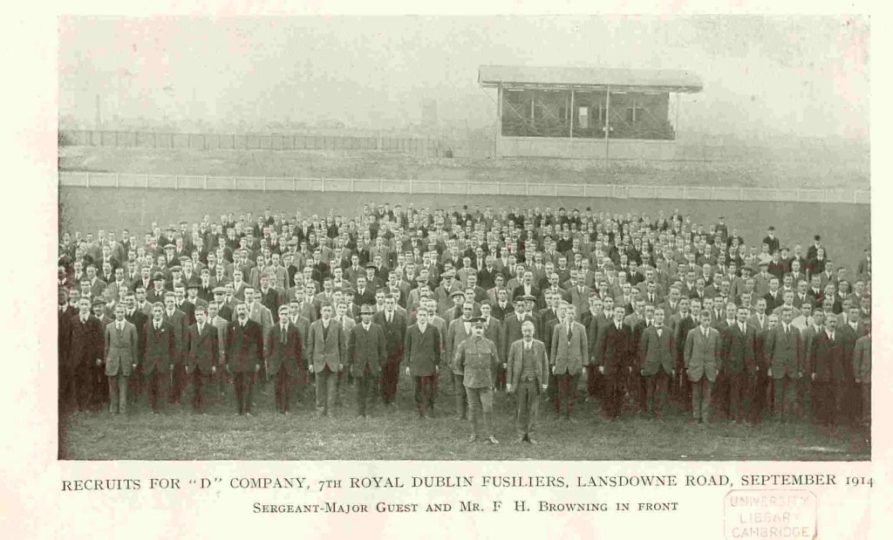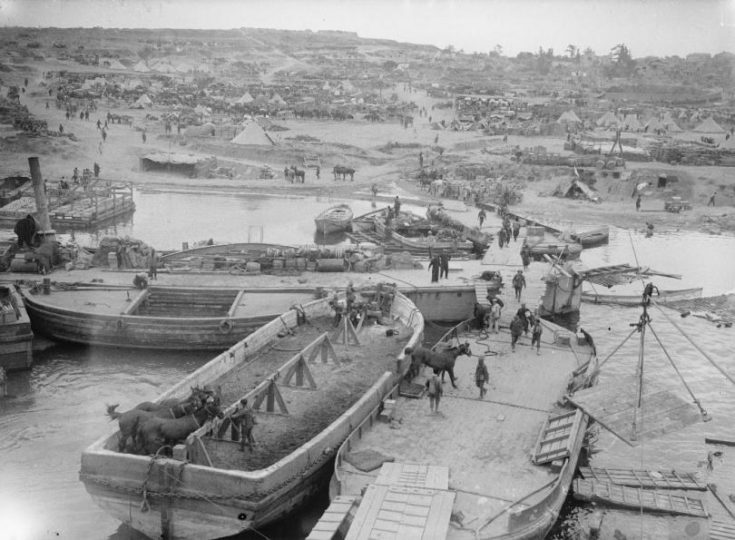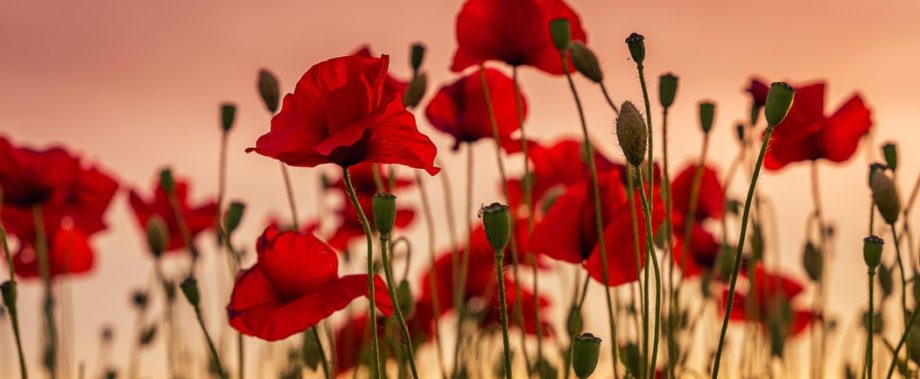
The World War I Centenary exhibition is also available as a standalone presentation on Microsoft Sway, featuring large images, animations and interactive navigation.
Irish Barristers and the First World War
The Outbreak of War
The outbreak of war in July 1914 was a cataclysmic event whose effects would be felt across the continent of Europe. Ireland, as a part of the United Kingdom, was dealing with its own struggles, standing on the brink of Civil War. Parliament had recently voted to enact the Home Rule Bill. However, with the advent of the Great War, it was decided to suspend the introduction of Home Rule causing further unrest and uncertainty throughout the country.
Why Irishmen Volunteered to Fight
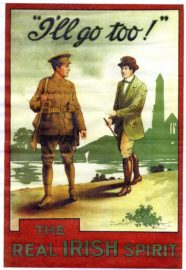
At the onset of war in 1914 Irish men flocked to the recruitment stations as it was assumed that the war would be over by Christmas. Poster campaigns illustrating strong Irish imagery were used to great effect, and volunteers from the Civil Service, universities, train companies and businesses were encouraged to join up together in Pals’ battalions. Over the duration of the War, it is estimated that approximately 200,000 Irish men fought. Conscription was never enforced in Ireland, as in the rest of the United Kingdom. As such, the majority of these men were not professional soldiers.
The motivations for joining the British army during WW1 were complex and varied. They included government propaganda, the glorification of war, peer pressure, education, status, family history, poverty, unemployment, and a quest for adventure, amongst others. In addition, both those in favour and those against the introduction of Home Rule organised their own armed forces to assist the Allies. Those against Home Rule formed the Ulster Volunteer Force whilst those in favour of Home Rule formed the Irish Volunteers.
Many Irish women also volunteered their services throughout the war. They worked tirelessly and heroically as nurses and voluntary aid detachments for organisations such as the Red Cross, often on the front line. The barristers commemorated in this exhibition are men, simply because at this time women were not permitted to enter the Bar or to join combat units. However, of note is the first practising female barrister, admitted to the Irish Bar in 1921, Averil Deverell , who drove with the ambulance corps in France for the duration of the War.
In addition, Irish civilians also played their part. 37,000 workers were involved in the ship building industry in Belfast and many munitions factories could be found throughout Ireland, with several state munitions factories being established and employing 2,100 people, mostly women, in Dublin, Cork, Galway and Waterford.
Irish Barristers & The Great War
Given their history in politics and rebellion, it is not surprising that many Irish barristers volunteered for service in the British forces during World War 1. Like other professions, there were those amongst the members of the Bar who sought to play their part in what they saw as a fight for freedom and the protection of small nations. Many barristers were also graduates of TCD, where there was a very active Officer Training Corp.
Isn’t this a good record for the Irish Bar? Five members in a radius of a few miles.”
Herbert Tierney, January 1916
When World War 1 began there were approximately 300 members of the Bar. The Irish Law Times War Supplement of 1916 numbered those called to the Bar who chose to enlist at 126 (not all of whom were practising members of the Library). In addition, the supplement also refers to 95 barristers as having one or more sons serving, a total of 160 sons of barristers enlisted. As such the Great War had a very significant and personal impact on the membership of the Bar.
To support their colleagues fighting at the front, the Bar Council passed a resolution on the 27th November 1914 that would protect the practices of serving members, until they could return. They resolved that:
….with a view to preserving so far as possible the practice of every barrister who is unable to attend to his business owing to his serving in His Majesty’s Forces, or otherwise in connection with the war (hereinafter designated as A.B.), the Bar Council recommends:
- That all barristers should make it a point of honour to do what they can to ensure that A.B. may get back his practice intact when he resumes work at the Bar.
- That all barristers, whether senior or junior to A.B., should, so far as is reasonable practicable, do the work of A.B.
- That any barrister doing the work for A.B. should, after his signature to any pleadings or other documents, add “for A.B. now serving in His Majesty’s Forces” (or as the case may be), and if holding a brief should state to the Court for whom he is holding such brief and for what reason.
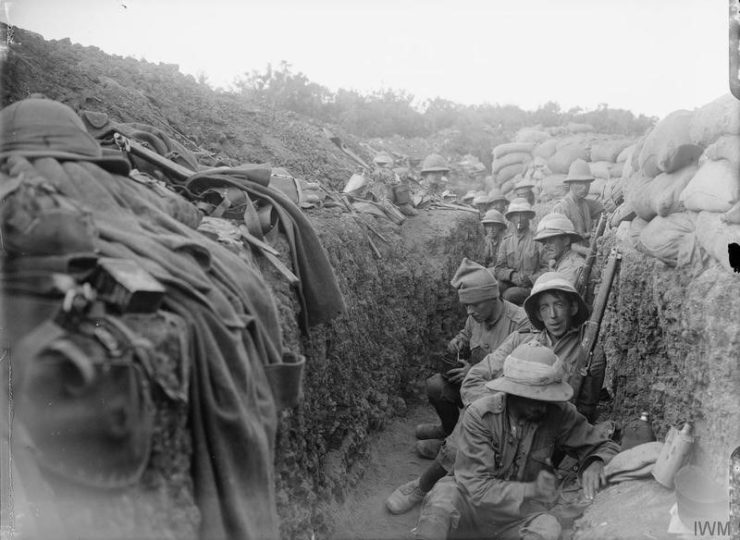
Members of the Bar who did not enlist became involved in the war effort at home. A group of barristers, solicitors and civil servants formed the Four Courts Auxiliary Munitions Association to assist in the manufacture of ammunitions in their spare time. This involved them working, free of charge, in the munitions factories at the weekends to support their colleagues and family at the front.
Troops of the Royal Irish Fusiliers (10th Irish Division) in the trenches of Gallipoli © IWM (Q 13444)
Barristers who died during the Great War
Although it is hard to get a precise figure on the number of Irish fatalities during the war, it is estimated that over 49,000 soldiers from the island of Ireland were killed. Of the 126 serving barristers, 25 lost their lives, so in May 1924 a memorial by the sculptor Oliver Sheppard was commissioned by the Bar and unveiled in Dublin Castle to commemorate the fallen. This public sculpture was later placed near the entrance to the Law Library in the Four Courts, after its reconstruction in the early 1930s, where it can still be seen today. The impressive bronze memorial lists the names of the 25 barristers who died in World War 1.
Every year, to commemorate their fallen colleagues, The Bar of Ireland holds a remembrance ceremony at the sculpture in the Four Courts.
Know that we fools, now with the foolish dead, Died not for flag, nor King, nor Emperor,— But for a dream, born in a herdsman’s shed, And for the secret Scripture of the poor.
Tom Kettle, To My Daughter Betty, A Gift from God
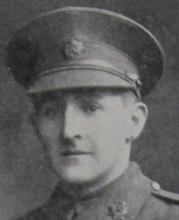
Robert Balderston Burgess
25/12/1891-10/12/1915
24 years old
Robert Balderston Burgess was born in 1891 to Henry Givens Burgess and Agnes Burgess. He attended Trinity College Dublin and was admitted as a student to the King’s Inns in 1910. In 1914 he was called to the Bar and practised for some time on the North East circuit. He enlisted shortly after, in November 1914, as a captain in the Inland Water Transport, Royal Engineers. He served on the Western Front but died on the 10th December 1915 when a shell burst as he was cycling through rue de Dunkerque at Armentieres, France. Before enlisting he had been considered one of the best rugby players in Ireland.
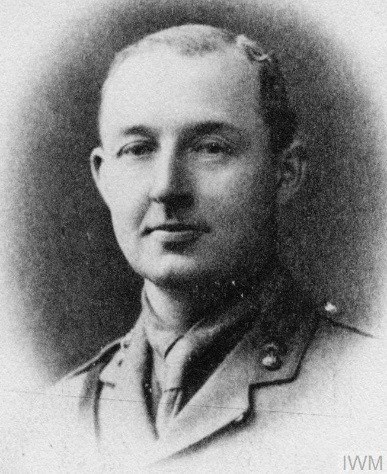
William Magee Crozier
41 years old
William Magee Crozier was born in 1875 to Francis Rawdon Moira Crozier, a solicitor, and Catherine Sophia Magee. He attended Trinity College Dublin and had a successful academic career as both an exhibition winner and scholar. In 1895 he was admitted to the King’s Inns and was called to the Bar in 1898, eventually practising on the North East Circuit.
In August 1914 Crozier enlisted as second lieutenant with the 9th Battalion, Royal Inniskilling Fusiliers, 36th (Ulster) Division, 109th Brigade, and was promoted to the rank of Lt. on 10th of October 1914. Crozier was killed in action at aged 41 on the 1st of July 1916 at Thiepval, on the first day of the Somme offensive.
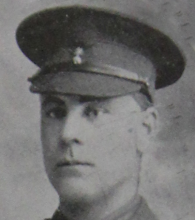
Robert Hornidge Cullinan
09/08/1881-08/08/1915
34 years old
Robert Hornidge Cullinan was born in 1881, son of John Cullinan, a solicitor, and Martha Frances Faris. He attended Trinity College Dublin where he won the senior Erasmus Smith medal in history and political science. He was admitted as a student to the King’s Inns in 1901 and was called to the Bar in 1904, practising on the Munster circuit. Cullinan enlisted in November 1914 and purchased a commission as a captain with the C Company, 7th Battalion, Royal Munster Fusiliers, 30th Brigade, 10th (Irish) Division.
While doing reconnaissance work at the Kiretch Tepe ridge on the 8th of August 1915, Cullinan was killed in action during an advance from Turkish trenches.
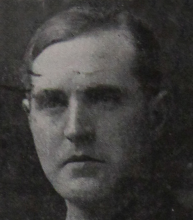
John Hammond Edgar
23/10/1879-25/02/1916
36 years old
John Hammond Edgar was born in 1879 in Belfast to Robert Smyth Edgar and Eliza Jane Jardine. He had a successful academic career, attending Queen’s College Belfast, the Royal University of Ireland and London University. He was admitted as a student to the King’s Inns in 1901, where he was Brooke Scholar, and called to the Irish Bar in 1904. He was also a student in Middle Temple, 1902, and was called to the English Bar on the 26th of January 1905. In Ireland, Edgar practised on the North East Circuit.
He volunteered at the outbreak of the war and was commissioned as a second lieutenant with the 9th Battalion (Territorial), Durham Light Infantry. He was promoted afterwards to the rank of lieutenant and served on the Western Front. At age 36, Edgar was killed in action in the front line trenches on the Ypres salient, on the 24th of February 1916.
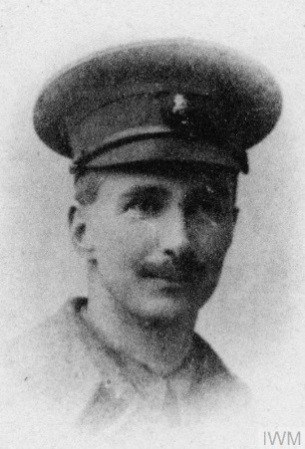
Edmond Chomley Lambert Farran
Edmond Chomley Lambert Farran was born in 1879 to Edmond Chomley Farran and Anne Hume Ryan. Farran attended Trinity College Dublin and was admitted as a student to the King’s Inns in 1901. He was called to the Bar in 1904 and later practised on the Munster circuit, co-authoring The Law Relating to the Purchase of Land. Farran enlisted in September 1914 and served on the Western Front as a captain with the 3rd Battalion, Royal Irish Rifles. Farran was killed in action by German machine guns on the 16th June 1915 while leading C & D Companies of the 2nd Battalion, Royal Irish Rifles
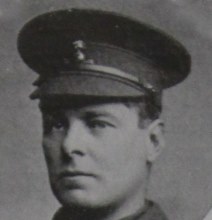
Poole Henry Hickman
08/06/1880-16/08/1915
35 years old
Poole Henry Hickman was born in 1880 to William Gore Hickman and Elizabeth O’Brien. He studied at Trinity College Dublin before being admitted to the King’s Inns in 1906 where he was awarded a medal for debating at the Law Students’ Debating Society. He was called to the Bar in 1909 and became the honorary secretary and treasurer of the Munster Circuit. Though his legal career was short, he was highly esteemed by his colleagues. Hickman enlisted in September 1914 with the D Company (Pals), 7th battalion, Royal Dublin Fusiliers, 10th (Irish) Division (also known as the “Dublin Pals”). He was promoted to the rank of Captain in January 1915 and served in Gallipoli. On 16 August 1915, at age 35, Hickman was killed in action at the Kiretch Tepe ridge while leading a bayonet charge.
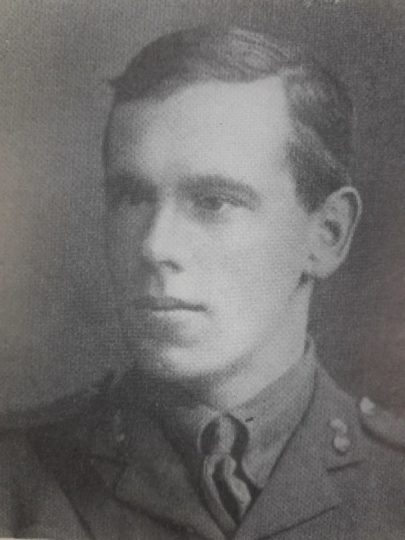
Ernest Lawrence Julian
28/07/1879-08/08/1915
36 years old
Ernest Lawrence Julian was born in 1879 to John Julian, crown solicitor, and Margaret Parsons. He studied in Trinity College Dublin and entered the King’s Inns in 1900 where he received the Brooke scholarship. He was called to the Bar in Michaelmas 1903. He was a popular member of the Connaught Bar and went on to become Reid Professor of Law at TCD. On the outbreak of war Julian enlisted and received a commission with the ‘Pals’ D Company 7th Battalion Royal Dublin Fusiliers. He served at Gallipoli and became one of the first soldiers of the 10th Irish Division to be killed in action. He died of wounds sustained whilst leading his men during an assault on Yilghin Burnu, or Chocolate Hill, at Suvla Bay.
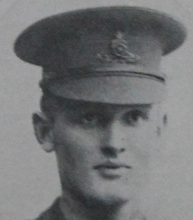
Cecil Stackpoole Kenny
20/10/1891-11/11/1915
25 years old
Cecil Stackpoole Kenny was born in 1891 (or 1888) to Thomas Hugh Kenny, a solicitor, and Louise Stackpoole Dunne, an author. He studied in Trinity College Dublin and was admitted to the King’s Inns in 1909. In 1912 he was called to the Bar.
In August 1915 Kenny enlisted with the 9th Battalion, King’s Shropshire Light Infantry, No. 3 (b), Young Officers’ Company. His army career was short lived. He took leave not long after enlisting and he then passed away while travelling back to his regiment on the SS Greenore troopship, falling overboard and drowning on the 11th November 1915 at age 25.
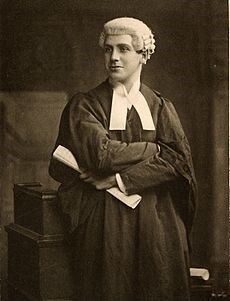
Thomas Michael Kettle
09/02/1880-09/09/1916
36 years old
Thomas Michael Kettle was born in 1880 to Andrew Joseph Kettle, one of the founders of the Land League, and Margaret McCourt. He attended University College Dublin, as well as law lectures in Trinity College while a student at the King’s Inns. He was called to the Bar in 1906 but though a talented legal student, Kettle pursued other career paths, and was elected MP for the Irish Parliamentary Party for East Tyrone from 1906-1910, then becoming professor of economics at UCD. Kettle was also involved with the Irish Volunteers but enlisted in November 1914 after witnessing atrocities committed during the German invasion of Belgium. He acted as a lieutenant with the 9th battalion of the Royal Dublin Fusiliers, 16th (Irish) Division, serving on the Western Front. On the 9th September 1916 he was killed at Ginchy on the 71st day of the Battle of the Somme.
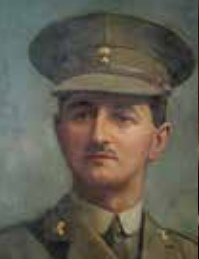
Joseph Bagnall Lee
03/05/1888-07/08/1915
27 years old
Joseph Bagnall Lee was born in 1888 to Edward Lee, of Lees & Co., and Annie Shackleton. Lee attended Trinity College Dublin; achieving a 1st class honours degree, and a gold medal in moderatorship, legal and political science during his time there. He was admitted as a student to the King’s Inns in 1905 and was called to the Bar in 1909. As a barrister, Lee practised on the North East and North West circuits and wrote two law books on criminal injuries compensation and the Shop Acts. Along with two of his brothers Lee enlisted and joined the 6th Battalion, Royal Munster Fusiliers, 10th (Irish) Division, 30th Brigade in September 1914 and was killed in action on 7th of August 1915 during an attack on Kiretch Tepe, Gallipoli.
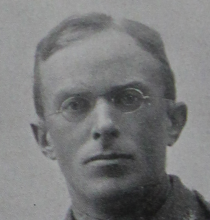
John Henry Frederick Leland
17/09/1884-10/08/1915
29 years old
John Henry Frederick Leland was born in 1884 to Henry and Laura Leland. Leland was a classical scholar at Trinity College Dublin, and was admitted to the King’s Inns in 1907. In 1911 he was called to the Bar and practised on the North East circuit. Leland enlisted in August 1914 and rather than joining the Pals he went into a Welsh regiment as a 2nd lieutenant with the 5th (Flintshire) Battalion (Territorial), Royal Welsh Fusiliers, part of the 158th brigade of 53rd (Welsh) Division.
He was killed in action the day following his arrival in the Dardanelles, on the 10th August 1915, as his unit took part in an advance across the Salt Lake at Suvla Bay
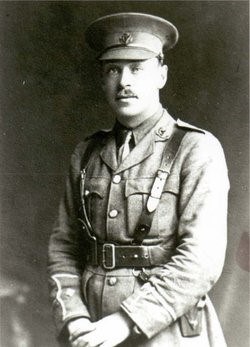
Frederick Henry Lewin
26/08/1877-08/12/1915
38 years old
Frederick Henry Lewin was born in 1877 to Frederick Thomas Lewin and Lucy Emma Corrie. Lewin attended Oxford University, Merton College, graduating with a BA in jurisprudence. In 1899 he was admitted as student to the King’s Inns and was called to the Bar in 1902, practising in Connaught. Lewin, a former lieutenant in the East Surrey Regiment Special Reserve, was mobilised on the 4th August 1914. He was commissioned as a 2nd lieutenant, 3rd Battalion, Connaught Rangers, but obtained the rank of captain on the 2nd February 1915. He never had the chance to serve outside of Ireland as he was killed in Kinsale, Co. Cork, on the 8th of December 1915. During a demonstration of a catapult designed for throwing bombs, a device accidentally exploded and Lewin died from the resulting injuries.
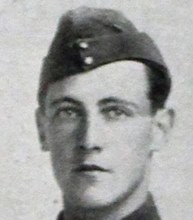
Martin Michael Arthur Lillis
21/09/1890-11/04/1917
26 years old
Martin Michael Arthur Lillis was born in 1890 to Thomas Barry Lillis and Annie Goggin. He studied at Trinity College Dublin before being admitted as a student to King’s Inns in 1911. During Trinity term 1914 he was called to the Bar and practised on the Munster circuit for a short time. On the outbreak of war he attended Sandhurst military academy and enlisted in September 1915 with the 1st/2nd battalion of the Royal Irish Regiment. He was later attached to the Royal Flying Corps, 3rd Squadron, in February 1916. On the 11th April 1917, Lillis was killed in action engaged in air combat with German ace flyers at the Battle of Arras, near Lagnicourt, Northern France.
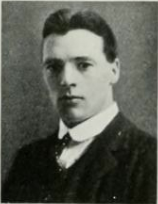
William Alfred Lipsett
29/01/1886-23/04/1915
29 years old
William Alfred Lipsett was born in 1886 to Robert Lipsett and Martha E. Lipsett. He was admitted as a student to the King’s Inns in 1904 and was called to the Bar in 1907. His legal practice began in the North West of Ireland. William emigrated to Canada in the spring of 1914 and engaged in legal work in Calgary, Alberta. He enlisted in August 1914, in the 10th Unit Bn. (Alberta Regiment), which was known as the Canadians, 2nd Brigade, 1st Canadian Infantry Division. His rank was Private/grenadier, No. 20330, and he served on the Western Front. Exceptionally among the barristers who enlisted, William was not ranked as an officer, and he refused a commission. He died on the 23 April 1915, aged 29, at the second battle of Ypres, killed within 10 or 15 yards of the German redoubt.
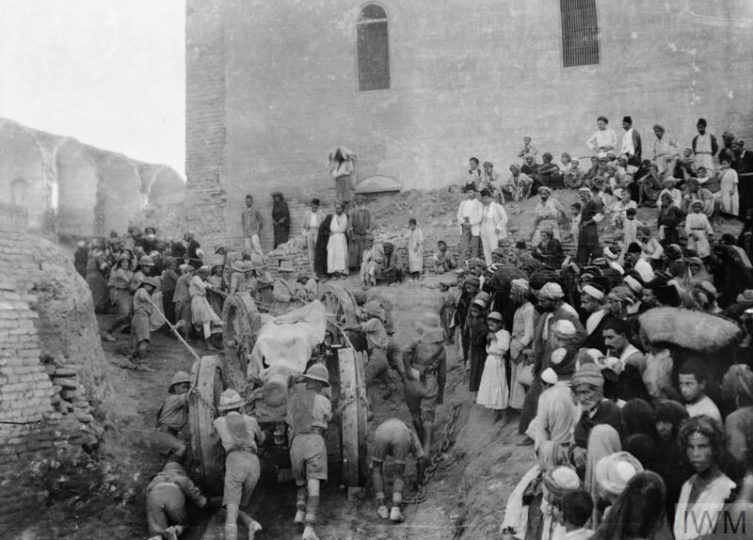
Cornelius Aloysius MacCarthy
28 years old
Cornelius Aloysius MacCarthy was born in 1889 to Patrick MacCarthy, a solicitor, and his wife. He was admitted as a student to the King’s Inns in 1910 and was called to the Bar in 1913. His legal practice was based in Munster. Cornelius enlisted in 1916 to the 6th Battalion, Royal Dublin Fusiliers, 10th (Irish) Division, 30th Brigade, which served in the Middle East in 1917. Records also indicate that he was attached to the 9th Battalion., Royal Dublin Fusiliers, 16th (Irish) Division, 48th Brigade. His rank was Lieutenant. He was reported missing, drowned at sea, on the 19th July, 1917, aged 28.

Edmund Richard Meredith
05/03/1884 – 20/08/1917
33 years old
Edmund Richard Meredith was born in 1884 to Richard Edmund Meredith QC and Annie Pollock. He was admitted as a student to the King’s Inns in 1904 and was called to the Bar in Trinity term 1907. He was Secretary to the Master of Rolls in Ireland. Richard’s Unit in the army was the 1st British Red Cross Unit, according to the Commonwealth Graves Commission. He served in Italy where his rank was Chauffeur. Richard died on the 20th August 1917, aged 33, shortly after his arrival in Italy.

Arthur Robert Moore
22/07/1883 – 01/07/1916
32 years old
Arthur Robert Moore was born in 1883 to Sir John William Moore and Louisa Emma Armstrong. He was admitted as a student to the King’s Inns in 1903 and was called to the Bar in Michaelmas term 1906. He practised at the Leinster Bar. Arthur enlisted in August 1914 with the City of London Regiment, Royal Fusiliers as a 2nd Lieutenant. He died aged 32 on the first day of the Battle of the Somme, July 1916.

Hubert Michael O’Connor
22/01/1887 – 17/08/1917
30 years old
Hubert was born in 1887 to Dr. Charles Joseph O’Connor, medical advisor to Clongowes Wood College and Mary Anne Lynch. He was admitted as a student to the Kings Inns in 1905, and was called to the Bar in the Hilary term 1910. He practised at the Leinster Bar. Shortly after the outbreak of war he enlisted with the Cadet Dublin University Officer Training Corps and in 1915 he was granted a commission with the 6th Battalion, King’s Shropshire Light infantry. He served on the Western Front and received the Military Cross in 1916 for his bravery in leading a raiding party at the start of the Battle of the Somme. Around this time he revisited his legal colleagues in the Four Courts where he received much congratulation. Hubert died of gunshot wounds on the 17th August 1917 during the third battle of Ypres.
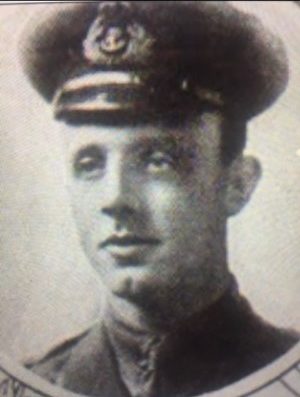
Gerald Plunkett
11/08/1887-04/06/1915
27 years old
Gerald was born in 1887 to Patrick Joseph Plunkett and Helena O’Sullivan, and lived in Co. Dublin. He was admitted as a student to the King’s Inn’s in 1907 and was called to the Bar of Ireland in Michaelmas term, 1910. Though he kept some terms at Inner Temple London there is no record of his call to the English Bar. He enlisted at the outbreak of the war and joined the Dublin University Officer Training Corps, Trinity. He received his commission in October 1914, into the Royal Naval Division and gazetted to HMS Victory. His unit was A Company, Collingwood Battalion, Royal Naval Division. His rank was Sub-Lt. and he served at Gallipoli and the Dardanelles. Leading his men towards the Turkish trenches during the third battle of Krithia/Alcitepe he was shot in the head and died on 4th June 1915.

James Claude Beauchamp Proctor
21/06/1885-01/07/1916
31 years old
James Claude Beauchamp Proctor was born in 1885 to James Edwin Proctor and Frances Jenkinson Orr. Previously a solicitor and Auditor at the Solicitors’ Apprentice Debating Society, he attended the King’s Inns and was called to the Bar in the Michaelmas term of 1913. He practised in the North West. He enlisted in September 1914 and became a captain of the 10th Battalion, Royal Inniskilling Fusiliers, OC of C Company, 36th (Ulster) Division, 109th Brigade. He went to France in October 1915 and served on the Western Front. He died on the 1st July 1916, the first day of the Battle of the Somme, when he was mortally wounded leading his men on an advance against the German trenches in a charge of the Ulster division.

William Hoey Kearney Redmond
William Hoey Kearney Redmond was born in 1861 to William Archer Redmond MP and Mary Hoey. He was admitted as a student to the King’s Inns in 1887 and called to the Irish Bar in 1891. Aged 54, William was commissioned as a temporary Captain on 22nd February 1915. Although he was considered exceptionally old to enlist, he was facilitated by Lt.-Gen. Sir Lawrence Parsons, commander of the 16th (Irish) Division during the recruitment period. “I am far too old to be a soldier”, he wrote when he joined the Irish Brigade, “but I intend to try to do my best for whatever life remains in me to show that Ireland at least is true to her treaties”. He was one of five Irish MPs who served with Irish brigades. William served in the 6th (Service) Battalion, Royal Irish Regiment (18th Foot), part of the 47th Irish Volunteer Brigade of the 16th (Irish) Division and was promoted from Captain to Major. He wrote regularly for the newspapers with articles posthumously published as ‘Trench Pictures From France’. He died on 7th June 1917 whilst leading his men at the battle of Messines.
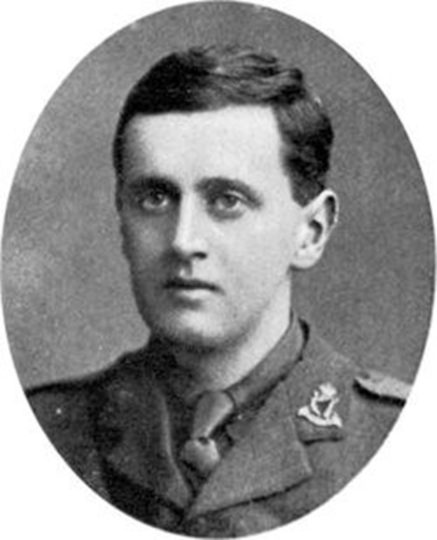
Arthur Purefoy Irwin Samuels
14/02/1887-24/09/1916
29 years old
Arthur was born in 1887 to the Right Hon. Arthur Warren Samuels K.C. and Emma Margaret Irwin. He attended Trinity College Dublin, was admitted as a student to the King’s Inns in 1907 and was called to the Bar in 1910. His legal practice was based on the North West circuit. He enlisted in June 1914 and became a Lieutenant to C Company, 11th Battalion, Royal Irish Rifles, 36th (Ulster) Division, 108th Brigade. He was later promoted to Captain. Wounded in June 1916 he missed the start of the main Somme offensive. Once recovered he served until he was mortally wounded on 24th September 1916 during action at Messines.

James Rowan Shaw
20/05/1880-22/02/1916
35 years old
James Rowan Shaw was born in 1880 to James Johnston Shaw K.C. and Mary Elizabeth Maxwell. He was admitted as a student to the King’s Inns in 1901 and was called to the Bar in Michaelmas term 1904. He practised on the North East circuit, where he was held in high esteem and was also an advocate and solicitor in the Federated Malay States, where he practised for over seven years. He had previously served during the Boer War and had been awarded the Queen’s South African Medal. He enlisted in April 1915 as a 2nd Lieutenant with the 9th Battalion, Cheshire Regiment. He was killed by sniper fire on the 22nd February 1916

George Bostall Jenkinson Smyth
23/07/1890-22/10/1918
28 years old
George Bostall Jenkinson Smyth was born in 1890 to James Davies Smyth and Charlotte Jenkinson. He was admitted to the King’s Inns in 1909 and was called to the Bar in the Trinity term of 1913. He practised in the North East, where he was known as Hellfire Smyth. He enlisted in August 1914 and was assigned to the 6th Battalion, Royal Irish Rifles, 10th (Irish) Division; 7th Battalion, Royal Irish Rifles, 16th (Irish) Division, 48th and 49th Brigades and later transferred to the 36th (Ulster) Division. In November 1917, the 7th Bn., was absorbed by the 2nd Bn. Royal Irish Rifles; he was posted to the 108th Brigade. He served at Gallipoli where he was seriously injured in August 1915 in the ankle and right leg. He was out of action until the Spring of 1916. He returned to the Western Front and after service as 2nd Lieutenant he was promoted to acting Captain in August 1917. He was killed in action at Harlebeke in Flanders on 22nd October 1918 during the Battle of Courtrai, one of the last major battles of the war.

Herbert Stanislaus Tierney
13/11/1888-09/04/1916
27 years old
Herbert Stanislaus Tierney was born in 1888 to Christopher Tierney and Frances Healy. He was admitted to the King’s Inns in 1907 and was called to the Bar in Hilary Term 1910. He practised for four years on the Munster circuit and was known as ‘Bertie’ to his friends. He joined the D company (the Pals), Royal Dublin Fusiliers as a private but was then commissioned as a 2nd Lieutenant, 8th Battalion, Cheshire Regiment, a section of the ‘New Army’ that later became part of the 13th Division. He fought through the Gallipoli campaign where he distinguished himself by many acts of bravery and after being wounded he was evacuated to Alexandria. He then went on to Mesopotamia as a temporary Captain with the Cheshires. From Basra he wrote a letter to his family that he was “now on the banks of the Euphrates, not far from the Garden of Eden, but oh! How it has changed”. He died on 9th April, 1916 in the attempt to relieve the siege of Kut-el-Amara, Mesopotamia.
They shall grow not old, as we that are left grow old, Age shall not weary them, nor the years condemn. At the going down of the sun and in the morning we will remember them
Robert Lawrence Binyon
